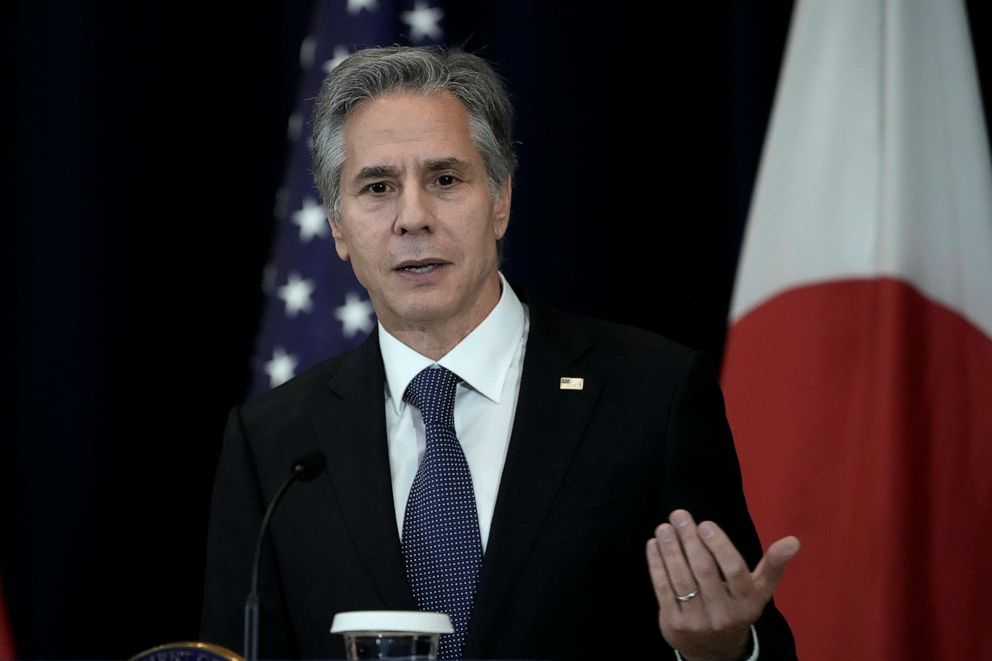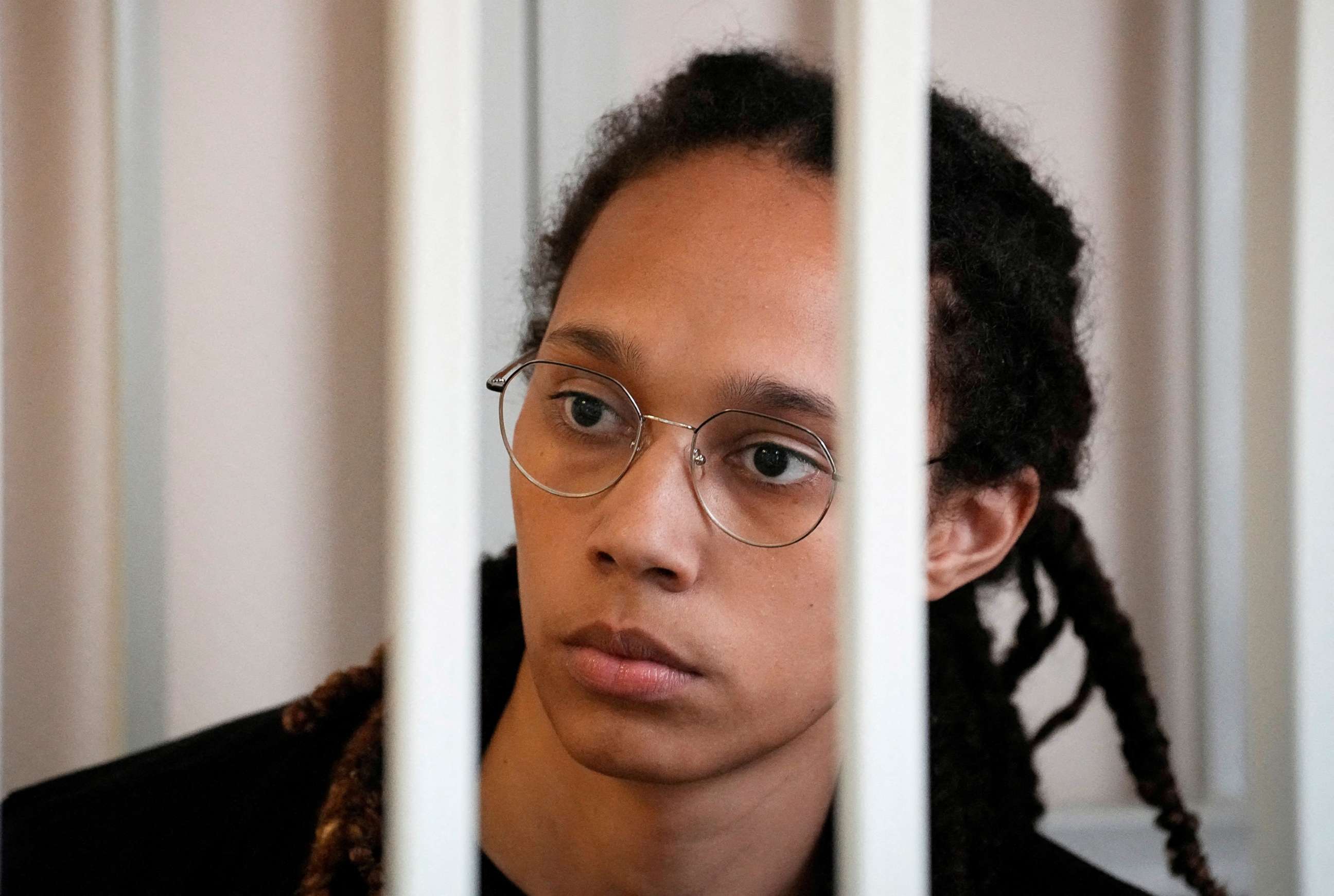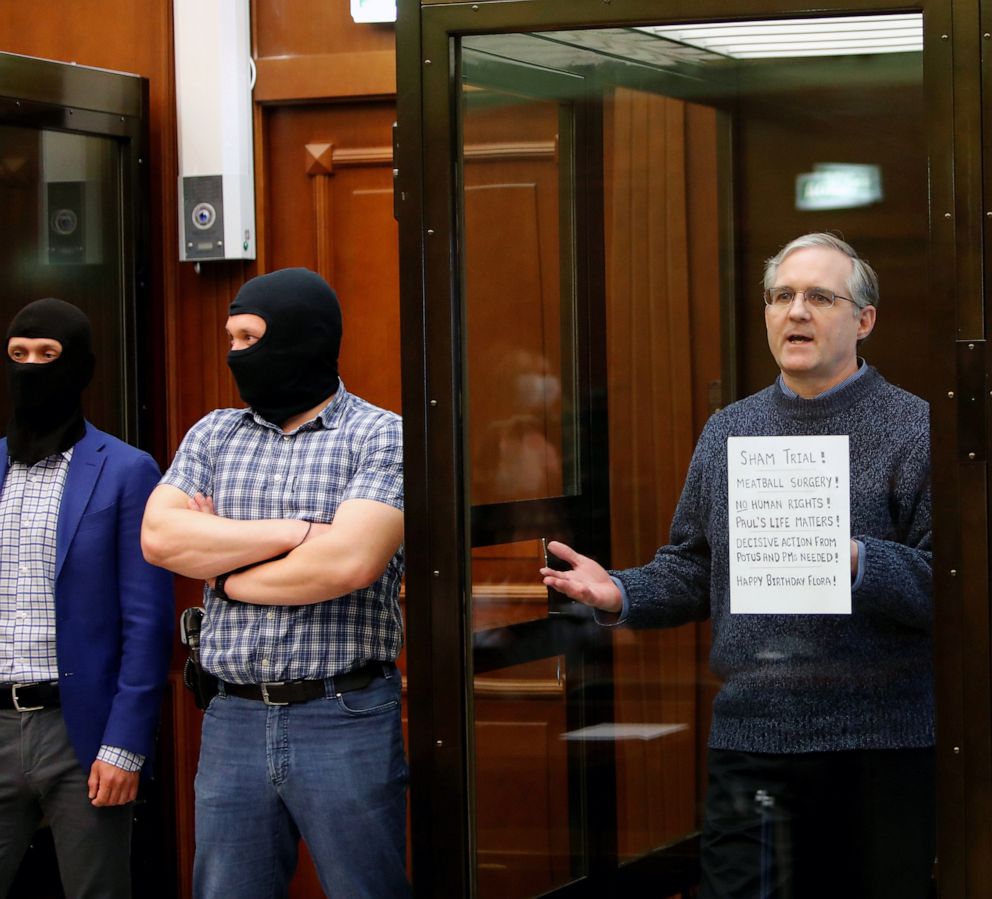Why the proposed prisoner swap may not quickly free detainees in Russia: Analysis
There are still hurdles ahead for Brittney Griner and Paul Whelan.
Secretary of State Antony Blinken's announcement that the U.S. had put a "substantial offer" on the table for Russia aimed at bringing home two Americans imprisoned in Russia -- WNBA star Brittney Griner and former Marine Paul Whelan -- was an exceedingly rare disclosure in the world of hostage diplomacy, where almost nothing is revealed until a deal is done. The revelation that convicted arms dealer Viktor Bout had been offered up as part of a prisoner swap only intensified speculation that the detainees might soon be on their way home.
But despite these developments, and Blinken restarting direct discussions with his Russian counterpart on Friday -- their first interaction since the outbreak of war in Ukraine -- experts caution there is still likely a long way to go before Griner and Whelan are released.

Trial delay
While Griner has been in Russian detention since February on drug charges and pleaded guilty, she has yet to be convicted of a crime. Although a guilty verdict is all but assured, Russia has consistently signaled that it wants to see its legal process play out before brokering any kind of agreement.
"That's what is required under Russian law," said William Pomeranz, the director of the Wilson Center's Kennan Institute for advanced research on Russia and Eurasia. "It's required that there has to be a final judgement."
Pomeranz cautions that there are "always loopholes" in the country's legal system, but says that Moscow wants to appear to have held out until after her sentencing before making a determination on a prisoner exchange or similar agreement.
Griner's trial began in early July, and Russian court watchers have predicted it could conclude before the end of summer. But there is no clearly set timeline and her preliminary detention has already been authorized through Dec. 20.

That's not the kind of control you want your adversary to have if you're a negotiator.
"If the Russians want to delay, they can do so. It will be up to the Russian court as to how fast and expedited a decision is made," Pomeranz said.
A numbers game
This spring, the Biden administration conducted its first prisoner swap, exchanging Russian citizen and convicted drug trafficker Konstantin Yaroshenko for another former U.S. Marine, Trevor Reed.
While Reed's return home was welcomed, he and many others questioned why Whelan -- who has already been locked away in Russia for over three years on espionage charges the U.S. government has called "trumped up" -- was left behind.
On Thursday, State Department Spokesperson Ned Price declined to say whether the U.S would take part in a deal that saw only Whelan or Griner freed, but it comes as no surprise that the offer put forward by the administration seeks a package deal.
However, even though the allegations against Griner wouldn't even amount to a misdemeanor in the U.S. and the government says the case against Whelan is fabricated, Russia will likely expect more than Bout -- or any individual prisoner -- in return.
"The Russians will want to have equivalency," said Pomeranz. "So if there are two Americans who are being proposed for a swap, the Russians will insist on two Russians in American custody."

This means the Biden administration would have to sweeten the deal -- and open itself up to more criticism for letting Russian criminals walk free.
And while Moscow might say Bout is a high priority, former Defense and State Department official and ABC News contributor Col. Steve Ganyard says in reality, he isn't.
"He is not a spy who caused major damage to U.S. national security," Ganyard said. "They get more mileage out of poking a finger in the United States' eye, and more importantly, making the White House look desperate."
Publicity push?
The very revelation that the administration offered Moscow a deal may speak best to that desperation.
"A sensitive negotiation isn't made public before it's done if it's going well," said Ganyard. "Publicizing the offer is a way of deflecting U.S. domestic pressure, but it's actually hurting the White House negotiating position by admitting frustration and a weak hand."
Price admitted on Thursday it was evident that the deal had not been received as U.S. diplomats had hoped given the amount of time that had passed since the offer was first made.
"We believe that now that this message, this substantial proposal, has been conveyed directly and repeatedly through appropriate channels in recent weeks -- of course without resolution," he said.
"The fact that now, several weeks later, we are where we are, I think you can read into that as being a reflection of the fact that this has not moved to the extent we would like," Price added.
So far, the Russians have given no public indication that they are ready to seriously engage.
"Unless there is some behind-the-scenes movement we don't know about, Brittney Griner and Paul Whelan will continue to be pawns in a drawn-out negotiation," said Ganyard.




